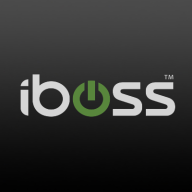


Cisco Umbrella and Fortinet FortiCASB compete in the cybersecurity market offering cloud security solutions. Cisco Umbrella may have the upper hand in pricing and user support, while Fortinet FortiCASB's comprehensive features justify its higher cost.
Features: Cisco Umbrella provides DNS-layer security, threat intelligence, and competitive pricing. Fortinet FortiCASB delivers advanced data protection, integrates seamlessly with Fortinet products, and offers comprehensive security features suitable for data protection requirements.
Ease of Deployment and Customer Service: Cisco Umbrella is known for its straightforward deployment and reliable customer support. Fortinet FortiCASB may require more time for deployment but offers comprehensive customer service options that cater to user needs.
Pricing and ROI: Cisco Umbrella offers competitive pricing and a high return on investment due to its efficient setup and operational reliability. Fortinet FortiCASB involves a higher initial setup cost, reflecting its extensive capabilities, achieving substantial ROI through enhanced data protection and seamless Fortinet integration.
| Product | Market Share (%) |
|---|---|
| Cisco Umbrella | 10.2% |
| iboss | 2.3% |
| Fortinet FortiCASB | 0.5% |
| Other | 87.0% |


| Company Size | Count |
|---|---|
| Small Business | 6 |
| Midsize Enterprise | 6 |
| Large Enterprise | 5 |
| Company Size | Count |
|---|---|
| Small Business | 49 |
| Midsize Enterprise | 30 |
| Large Enterprise | 51 |
Iboss offers a comprehensive cloud-based security platform valued for its scalability and autonomous features, ensuring robust security with easy deployment and management capabilities.
Renowned for its robust security architecture, Iboss integrates seamlessly within diverse networks, delivering efficient granular filtering and advanced content categorization. Its single pane of glass console provides ease of management, allowing rapid scalability suitable for rapidly deploying environments. Operates in BYOD setups due to inline filtering without device installation. Integration with cloud-based applications enhances user control, and features like SASE, SSL inspection, and ChatGPT risk protection stand as highlights. Despite its strengths, users have pointed out areas for enhancement like direct navigation in reports, SSL decryption, and better cloud integration while having room to improve data loss prevention.
What are the most important features of Iboss?The usage of Iboss spans educational institutions, specifically K-12, to enforce internet policies, protect data, and support remote work environments. It provides web filtering and security frameworks to ensure safe browsing. Its platform-as-a-service model offers flexibility for both cloud-based and on-premises requirements, integrating seamlessly to deliver enhanced security features suitable for various deployment needs including zero trust, CASB, and network security for work-from-home setups.
Cisco Umbrella delivers rapid DNS security with over 30,000 customers, providing outstanding threat protection and handling more than 600 billion requests daily. It's recognized for high threat efficacy in the SSE domain and integrates elements like SWG, ZTNA, CASB, and more.
Cisco Umbrella is renowned for its effective DNS-layer security against ransomware and phishing. It offers flexible content filtering and integrates seamlessly with existing networks while providing single-pane-of-glass management for centralized monitoring. Its robust threat intelligence and customizable policies are central to its appeal. Users highlight room for improvement in areas like WHOIS data inclusion, malware enhancement, and reporting analytics. Integration with other threat feeds and better client support are requested for more comprehensive coverage.
What are the key features of Cisco Umbrella?
What should users expect in reviews about Cisco Umbrella?
Industries implement Cisco Umbrella primarily for DNS-level security, web filtering, and protecting remote employees. It strengthens cybersecurity frameworks by blocking malware and avoiding access to harmful sites. The tool is widely integrated with Active Directory and Cisco Meraki, providing consistent internet security for employees.
Fortinet FortiCASB is a comprehensive cloud security solution offered by Fortinet, a leading cybersecurity company. FortiCASB is designed to provide organizations with visibility, control, and security for their cloud-based applications and services. It helps organizations secure their cloud environments, detect threats, enforce policies, and ensure compliance.
Fortinet FortiCASB Features:
FortiCASB offers visibility into cloud applications and services being used within an organization's network. It helps identify shadow IT and provides insights into the cloud usage patterns, facilitating effective management and control.
FortiCASB enables organizations to protect sensitive data in the cloud by enforcing data loss prevention (DLP) policies and encryption. It helps identify and control data sharing, detect anomalies, and ensure compliance with data privacy regulations.
FortiCASB incorporates advanced threat detection capabilities to identify and mitigate cloud-specific threats. It employs machine learning algorithms and behavioral analytics to detect anomalous activities, account compromises, malware, and other cloud-based threats.
FortiCASB enables organizations to enforce granular access controls for cloud applications, ensuring that users have appropriate permissions and follow secure authentication practices. It integrates with identity management systems and supports features such as single sign-on (SSO) and multi-factor authentication (MFA).
FortiCASB helps organizations monitor and maintain compliance with industry regulations and standards. It provides pre-defined compliance templates, automated policy enforcement, and detailed reporting capabilities to demonstrate adherence to data privacy and security requirements.
FortiCASB helps organizations discover and gain visibility into unauthorized or risky cloud applications used within their network. It enables IT teams to assess risks, enforce policies, and take appropriate actions to manage and control cloud usage effectively.
FortiCASB conducts security assessments of cloud applications and services to evaluate their security posture and identify vulnerabilities. It provides insights into potential risks and assists organizations in making informed decisions about the adoption of specific cloud services.
We monitor all Cloud Access Security Brokers (CASB) reviews to prevent fraudulent reviews and keep review quality high. We do not post reviews by company employees or direct competitors. We validate each review for authenticity via cross-reference with LinkedIn, and personal follow-up with the reviewer when necessary.